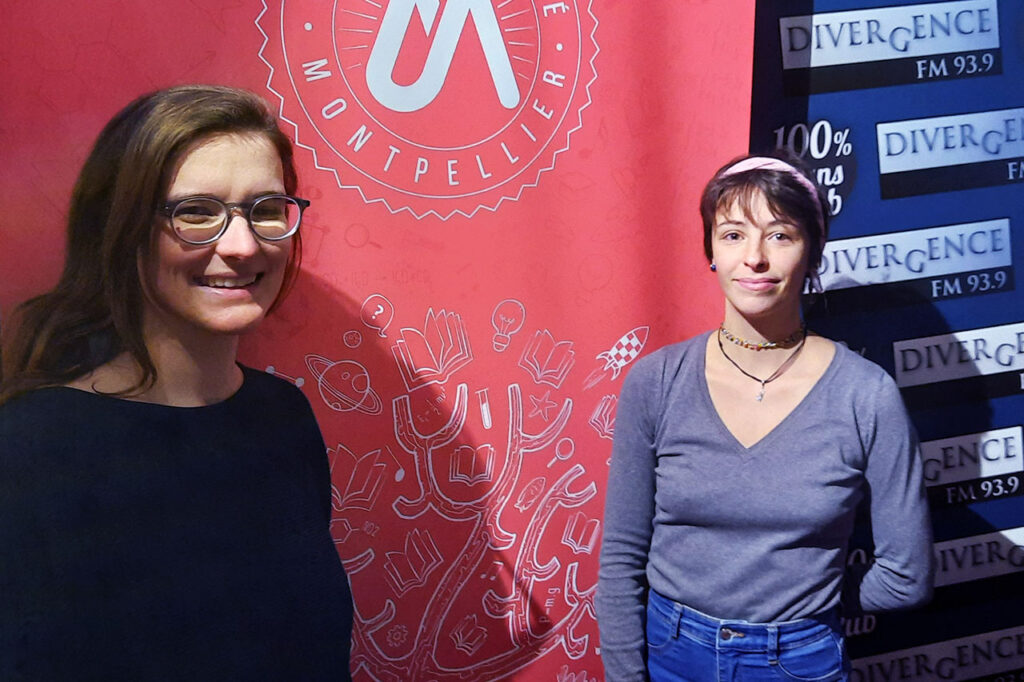Science at UM [S02-ep12]: From COP 15 to the Science Bar
This week on A l’UM la science, Anaëlle Durfort, a doctoral student at Marbec, and Marie-Morgane Rouyer, a doctoral student at CEFE, join us to analyze the latest COP 15 on biodiversity, which they attended. Agnès Pesenti, head of scientific culture, returns at the end of the program to present the new season of the Science Bar. The program is broadcast on Divergence FM-93.9 every Wednesday at 6 p.m.

When a boat takes on water, a good captain brings the entire crew up on deck to bail, bail, and hope to reach dry land. And in "bail," you heard COP, which stands for Conference of the Parties, the international body created following the Earth Summit in Rio in 1992 to try to stem the threat of climate change, which is like a major shipwreck. The idea is to enforce the United Nations Framework Convention on Climate Change by the 198 signatory countries.
The first COP was held in Berlin in 1995. Since then, 26 have taken place—one per year—up to the most recent one organized in 2022 in Sharm el Sheikh, COP 27. Of these meetings, COP 3, which gave birth to the Kyoto Protocols, and COP 21, which producedthe Paris Agreement, are particularly noteworthy. We also remember the failure of COP 15 in Copenhagen, which aimed to renegotiate a climate agreement (Le bilan décevant du sommet de Copenhague, Le Monde, December 19, 2009).
In parallel with these climate COPs and in response to the collapse of biodiversity, the COP for biodiversity was created in 1994 and is held every two years. If we had to mention just one, it would be COP 10 in Nagoya, where governments committed to achieving the 20 Aichi targets, including halving the loss of natural habitats and implementing sustainable consumption and production plans.
In 2020, none of these goals had been fully achieved. The evidence of biodiversity collapse is clear: 1 million species are threatened with extinction, 75% of the Earth's surface has been significantly altered, and 85% of wetlands have disappeared. The problem with bailing out is that it doesn't fix the leak.
Anaëlle Durfort and Marie-Morgane Rouyer are our guests. They are both PhD students at the University of Montpellier, the former at the Marbec underwater biology laboratory and the latter at the Center for Functional and Evolutionary Ecology (CEFE). They were selected by the Global Youth Biodiversity Network to participate in the latest COP on biodiversity, COP 15, held in Montreal from December 7 to 19 under the Chinese presidency. And they're here today to talk to us about it. They will also give a lecture open to the public on Thursday, January 26 at 6:30 p.m. on the Triolet campus.
Our last-minute guest will be Agnès Pesenti, head of scientific culture. She will present the new season of the Science Bar, which begins on January 26 with a nightmarish topic: sleep disorders.
At UM Science, you have the program, so let's get started!
Co-production: Divergence FM / University of Montpellier
Host: Lucie Lecherbonnier
Interview: Aline Périault / Lucie Lecherbonnier
Production: Tom Chevalier
Listen to the program “A l’UM la science” on Divergence FM 93.9

Find UM podcasts now available on your favorite platform (Spotify, Deezer, Apple Podcasts, Amazon Music, etc.).